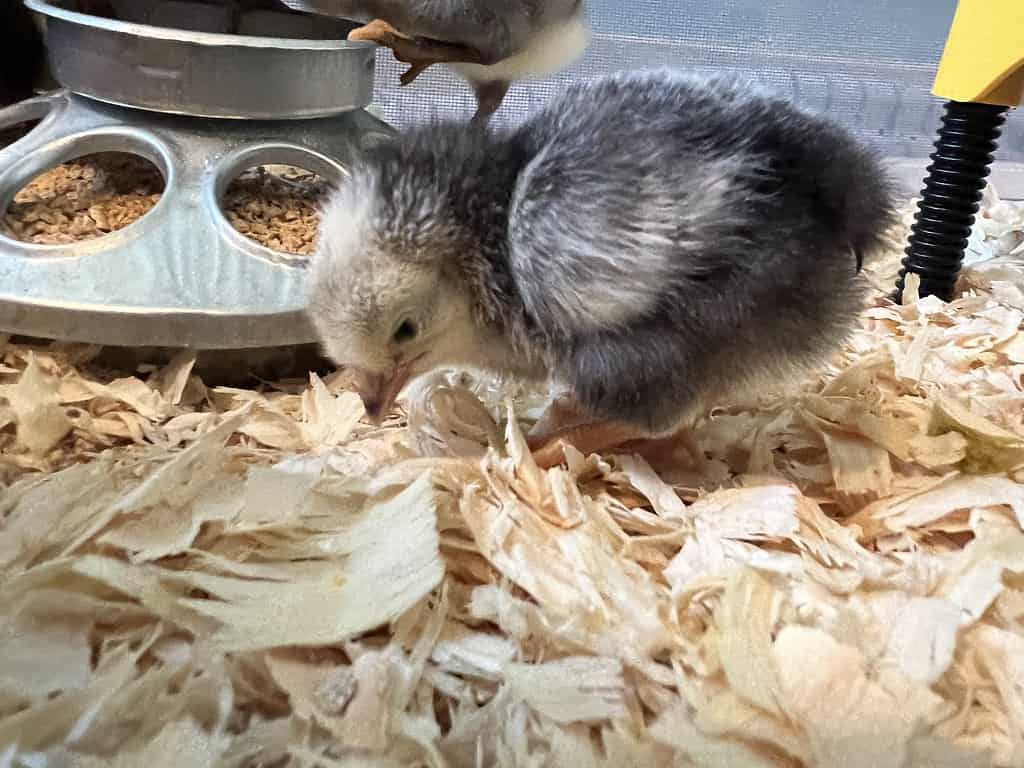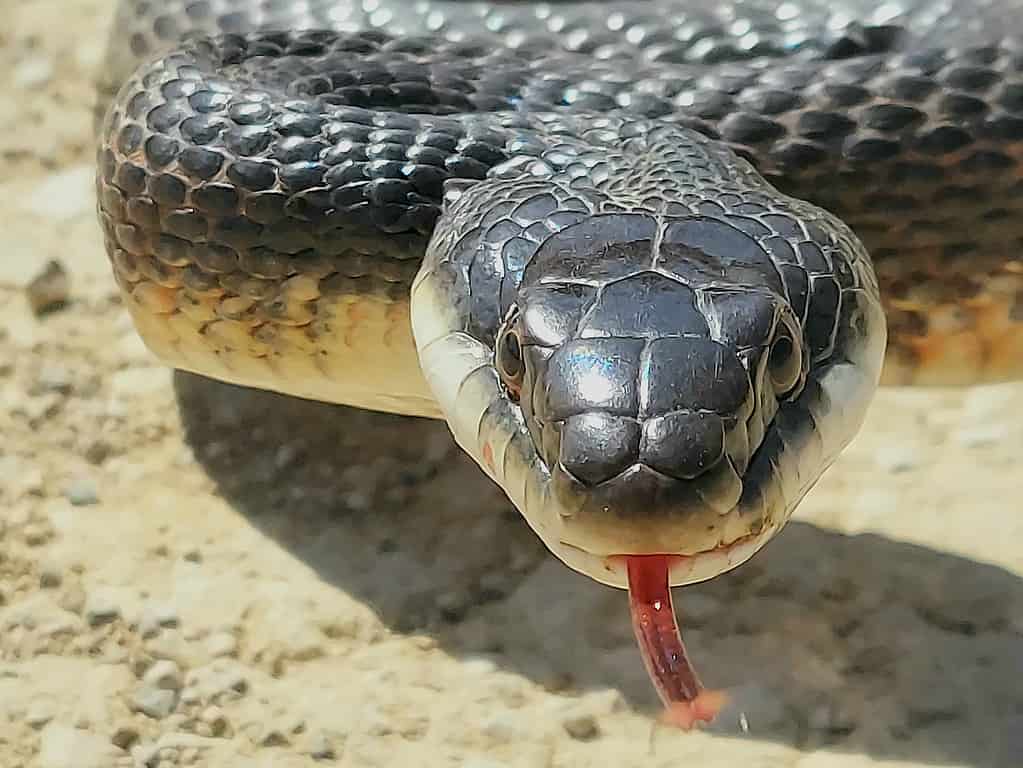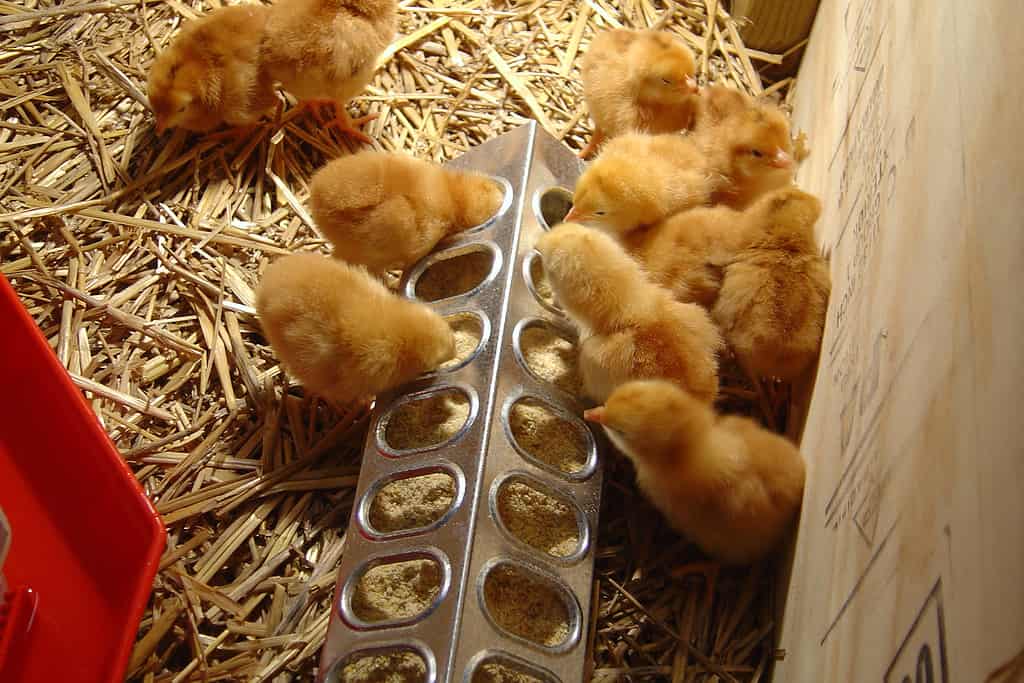If you’ve ever had the pleasure of raising your own small group of chickens in your backyard, you’ll know the delightful feeling that comes with the arrival of cute, chirping little chicks. It’s truly a fulfilling experience to see them grow and change from delicate, fluffy bundles into healthy, clucking hens and roosters. However, amid all the cuteness, there’s one challenge that poultry enthusiasts often face… A lingering unpleasant odor from the brooder. Whether you have prior knowledge in raising poultry or are just starting out with your feathered companions, continue reading as A-Z Animals will unveil secrets of how to keep your brooder smelling clean.
What is a Brooder Used For
A brooder is a special box designed to provide newly hatched chicks with a warm and controlled environment. This space ensures that these delicate birds receive the necessary growth development during the beginning stages of their life.
What makes a brooder complete

To complete the build of the brooder, it should be equipped with a thermal heat source to maintain its baseline temperature. Did you know that in the first week after hatching, the required heat setting inside the brooder must be set at 95 degrees?
Most importantly, to make the brooder feel extra cozy, add some straw shavings, as this gives them soft bedding to sleep in and cushioning for their feet while foraging around the brooder.
Key Reasons Why Your Chicks Require a Brooder
- Temperature control
- Protection
- Hygiene
- Access to food and water
- Containment
- Observation
Temperature control
When chicks hatch from their shells, they are exposed to outside temperatures that are not familiar to them. For this reason, it explains why it will take them a while to regulate their body temperature. Therefore, a brooder makes a perfect warm living area for them to grow into healthy chickens.
Protection

Baby chicks are at risk of certain predators, such as snakes, rodents and bigger birds.
©John Callahan/iStock via Getty Images
Because baby chicks are so vulnerable, they may be at risk of certain predators, such as rodents, snakes, and bigger birds. In addition to this, a brooder shall provide a protected area as it’s surrounded by wire mesh and a sturdy structure. Thus, its barricading barrier will keep these dangers at bay.
A brooder also shields them from cold drafts, rain, and excessive sunlight, ensuring a comfortable microclimate for their growth.
Hygiene
Brooders are specifically designed to be more convenient for cleaning and eliminate the spread of diseases. By creating a healthier environment for your chicks, it will ultimately add to their well-being.
Access to Food and Water

Brooders assist chicks to grow and develop because they have easy access to food and water.
©iStock.com/Jennifer Chamblee
Brooders make sure that baby chicks can easily reach their food and water, which helps them grow and develop properly while reducing the chances of dehydration and malnutrition.
Containment
To keep chicks contained in one area, a brooder will come in handy to make sure they don’t wander off and get lost. Especially while keeping them safe and secure until they are able to join the coop.
Observation
A brooder allows you to closely observe their health and ensure they receive the care they need without the complications of a larger coop.
How to Keep Your Brooder Smelling Clean
Change bedding regularly: It’s important to regularly replace the bedding inside the brooder with either straw shavings or paper toweling. Keep in mind that the more chicks that are placed inside the brooder will determine how often you would have to clean it. Furthermore, it’s best to change it every few days to prevent any smells from harboring.
Ventilation: Ensure that there is good air circulation to reduce the buildup of moisture and deodorize smelly odors. However, be cautious not to create drafts, as your chicks will get cold.
Temperature management: Maintain the correct temperature in the brooder to prevent overheating, which can lead to unpleasant odors. Overheating can cause chicks to sweat and create a damp environment.
Clean water and food: Chicks are known to be messy eaters and drinkers. Because of this, their dishes should be regularly replaced with fresh water and food to prevent infestations of mold growth.
Natural cleaning products: Avoid using strong chemical cleaning products in the brooder, as these fumes are harmful to chicks. Rather, mix equal parts of white vinegar and water to create an effective and natural cleaning solution. In addition, vinegar assists in neutralizing odors and has disinfectant properties.
Spot cleaning: During intervals of the day, remove any feces and urine lying around to keep the brooder smelling clean. Spot cleaning will prevent the buildup of ammonia that gives off its harsh odor inside the brooder.
Diet and probiotics: Don’t feed your chicks pungent-smelling foods. Ingredients that contain high protein and sulfur contents will most certainly lead to stinky droppings.
The photo featured at the top of this post is © Toa55/iStock via Getty Images
Thank you for reading! Have some feedback for us? Contact the AZ Animals editorial team.







